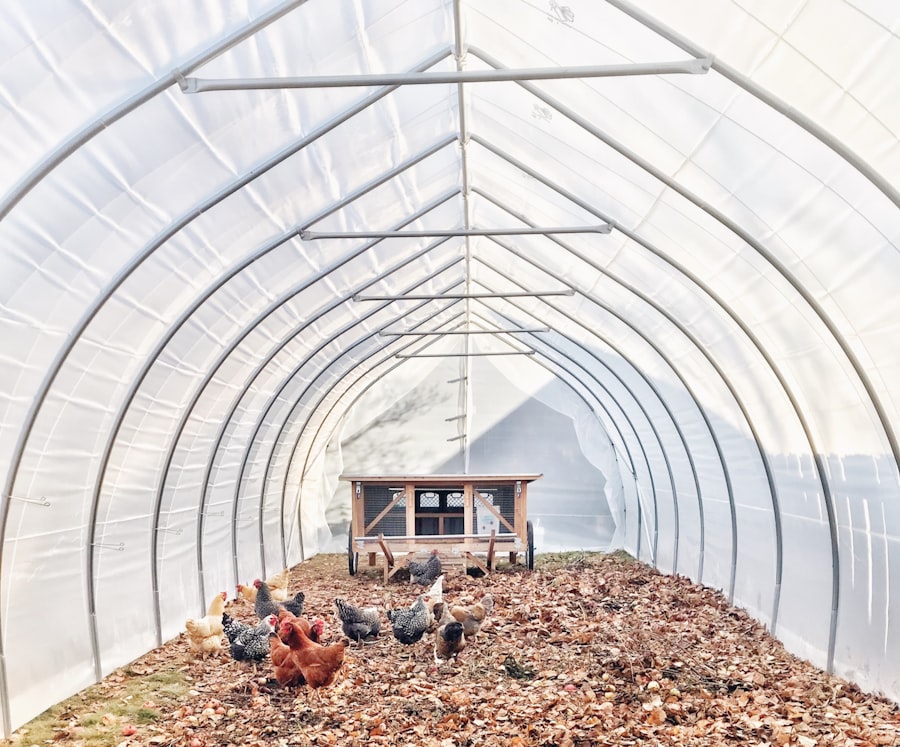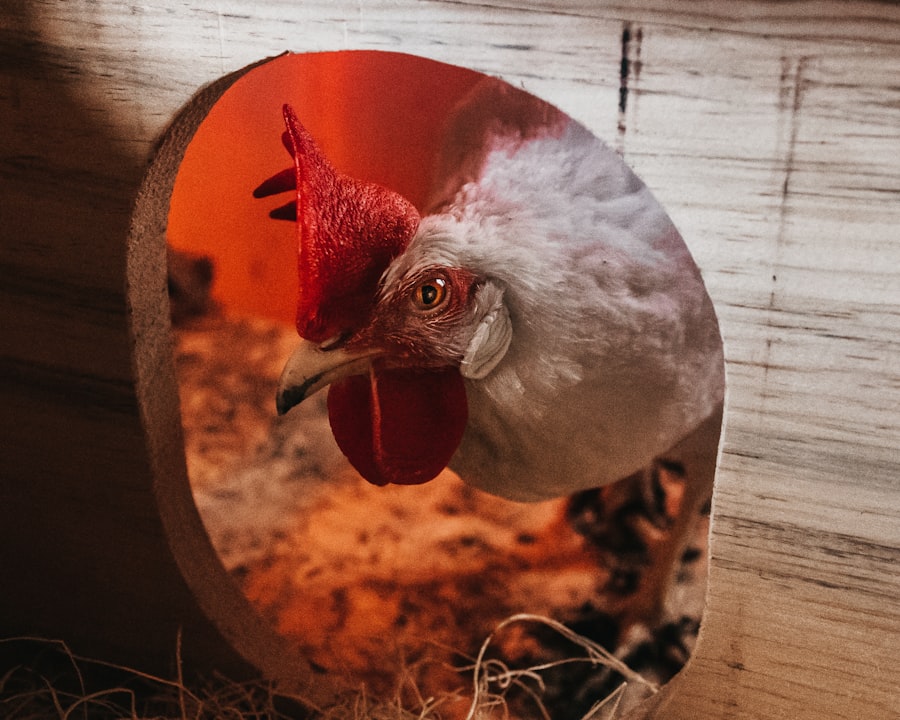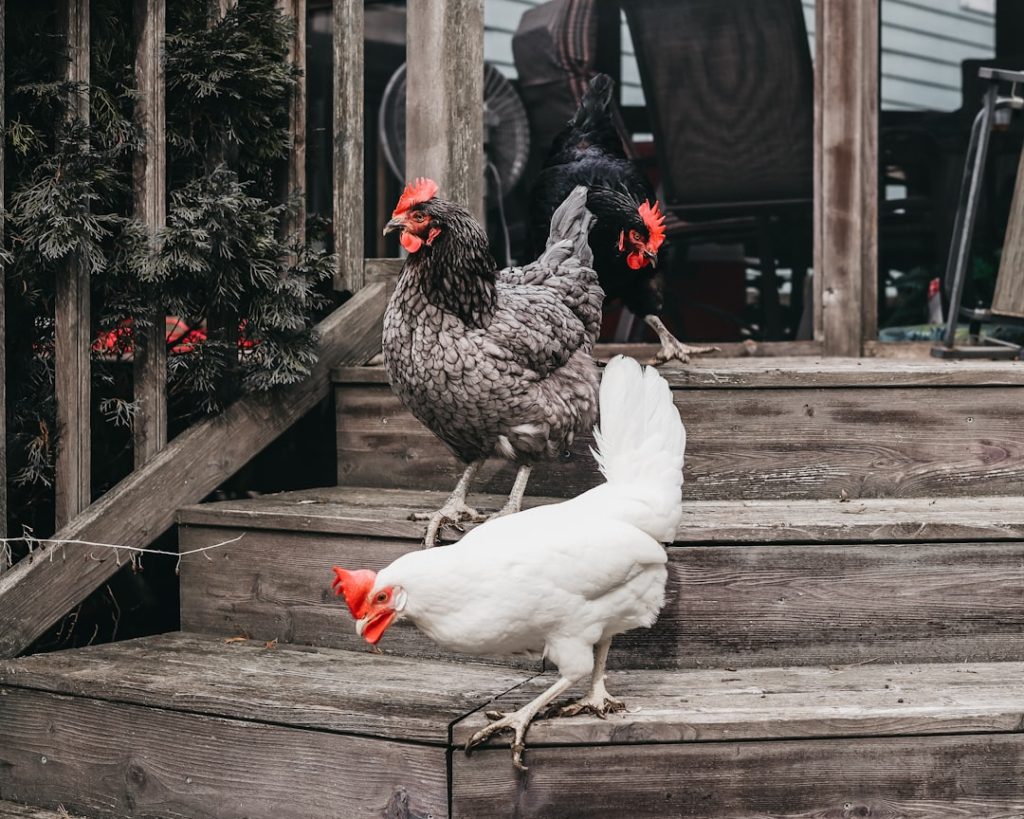Young chickens, or chicks, have specific requirements for healthy growth and development. Warmth is crucial, with chicks needing an environment of approximately 95°F (35°C) during their first week, gradually decreasing by 5°F (2.8°C) each subsequent week until they are fully feathered. This is necessary because chicks cannot effectively regulate their body temperature.
Clean water and high-quality chick starter feed are essential for proper hydration, digestion, and nutrition. Chicks also require protection from predators and a safe living space, such as a secure coop or brooder with sufficient room for movement and exercise. Social interaction is important for chicks, as they are naturally social animals.
Raising them in groups allows for learning and the development of social skills. Mental stimulation, provided through pecking objects and perches, helps prevent boredom and encourages natural behaviors. Meeting these needs is vital for the overall well-being and development of young chickens, ensuring they grow into healthy adult birds.
Poultry owners who understand and address these requirements can successfully raise chicks to maturity.
Table of Contents
- 1 Providing the right nutrition for young chickens
- 2 Creating a suitable living environment for young chickens
- 3 Implementing proper health care for young chickens
- 4 Ensuring socialization and mental stimulation for young chickens
- 5 Managing the transition to adult chicken care
- 6 Troubleshooting common issues with young chickens
- 7 FAQs
- 7.1 What are the basic needs for keeping young chickens?
- 7.2 What type of shelter is suitable for young chickens?
- 7.3 What should young chickens be fed?
- 7.4 How can I protect young chickens from predators?
- 7.5 What are some common health issues in young chickens?
- 7.6 At what age can young chickens be allowed to free-range?
Key Takeaways
- Young chickens require a warm and draft-free environment to thrive
- Providing a balanced diet with the right amount of protein is crucial for young chicken growth
- A clean and spacious living area with proper ventilation is essential for young chicken health
- Regular health check-ups and vaccinations are important for preventing diseases in young chickens
- Social interaction and mental stimulation are necessary for young chickens to develop properly
Providing the right nutrition for young chickens
Nutritional Requirements of Young Chicks
Chick starter feed typically contains higher levels of protein and essential vitamins and minerals that are crucial for the growth and development of young chicks.
Access to Clean Water
In addition to chick starter feed, it’s important to provide young chickens with access to clean water at all times. Water is essential for hydration, digestion, and overall health, so it’s important to ensure that young chickens have access to fresh, clean water throughout the day.
Monitoring Growth and Development
In addition to providing the right feed and water, it’s important to monitor the growth and development of young chickens to ensure that they are receiving adequate nutrition. This includes monitoring their weight gain, overall health, and behavior. If young chickens are not growing at a healthy rate or are showing signs of malnutrition, it may be necessary to adjust their diet or seek guidance from a poultry nutritionist or veterinarian. By providing the right nutrition for young chickens, poultry owners can ensure that their chicks have the best possible start in life and are set up for healthy growth and development.
Creating a suitable living environment for young chickens

Creating a suitable living environment for young chickens is essential for their health and well-being. One of the most important aspects of a suitable living environment for young chickens is providing them with a warm and secure space to live. This can be achieved through the use of a brooder or coop that is equipped with a heat source, such as a heat lamp or heating pad, to maintain the appropriate temperature for young chicks.
In addition to warmth, it’s important to provide young chickens with ample space to move around and exercise. This can be achieved by providing a spacious brooder or coop that allows for natural behaviors such as scratching, pecking, and dust bathing. Another important aspect of creating a suitable living environment for young chickens is ensuring that they have access to clean water and high-quality chick starter feed at all times.
Water is essential for hydration and digestion, while chick starter feed provides the necessary nutrients for growth and development. It’s also important to keep the living environment clean and free from potential hazards such as sharp objects, toxic plants, or other potential dangers. By creating a suitable living environment for young chickens, poultry owners can ensure that their chicks have a safe and comfortable space to grow and thrive.
Implementing proper health care for young chickens
Proper health care is essential for the well-being of young chickens. One of the most important aspects of health care for young chickens is monitoring their overall health and behavior on a regular basis. This includes observing their eating and drinking habits, as well as their activity level and overall demeanor.
Any changes in behavior or signs of illness should be addressed promptly to ensure that young chickens receive the necessary care and treatment. In addition to monitoring their health, it’s important to provide young chickens with access to clean water and high-quality chick starter feed at all times. Another important aspect of proper health care for young chickens is protecting them from potential diseases and parasites.
This can be achieved through regular cleaning and disinfection of their living environment, as well as implementing biosecurity measures to prevent the introduction of diseases from outside sources. Additionally, it’s important to provide young chickens with access to veterinary care when needed, such as vaccinations or treatment for common poultry diseases. By implementing proper health care for young chickens, poultry owners can ensure that their chicks remain healthy and free from potential illnesses or parasites.
Socialization and mental stimulation are important aspects of raising healthy and happy young chickens. Chicks are social animals that benefit from being raised in groups, as this allows them to learn from one another and develop important social skills. Providing opportunities for socialization can be achieved by raising chicks in groups or pairs, as well as providing them with ample space to move around and interact with one another.
Additionally, it’s important to provide young chickens with access to pecking objects, perches, and other forms of mental stimulation that encourage natural behaviors. In addition to socialization, mental stimulation is important for the overall well-being of young chickens. This can be achieved by providing them with access to objects that encourage natural behaviors such as scratching, pecking, and dust bathing.
Providing opportunities for natural behaviors can help prevent boredom and encourage mental stimulation, which is important for the overall health and happiness of young chickens. By ensuring socialization and mental stimulation for young chickens, poultry owners can help their chicks develop important social skills and behaviors that will benefit them throughout their lives.
Managing the transition to adult chicken care

Temperature and Nutrition
Gradually reducing the temperature in their living environment is crucial as they grow feathers and become better able to regulate their body temperature. Additionally, transitioning them from chick starter feed to a complete layer or grower feed that is appropriate for adult chickens is vital for their nutritional needs.
Providing a Suitable Living Environment
Adult chickens require a living environment that meets their specific needs. This includes access to nesting boxes for laying hens or roosts for perching. Providing a suitable environment helps to promote their overall health and well-being.
Addressing Behavioral Changes
Managing the transition to adult chicken care also involves addressing any behavioral changes or challenges that may arise as young chickens mature. This can include introducing new flock members or addressing any potential aggression or pecking order issues within the flock. By being proactive, poultry owners can minimize stress and ensure a harmonious flock.
By managing the transition to adult chicken care effectively, poultry owners can ensure that their young chickens continue to thrive as they mature into healthy adult birds.
Troubleshooting common issues with young chickens
Despite best efforts, there are common issues that may arise when raising young chickens that require troubleshooting. One common issue is pasty butt, which occurs when feces stick to the chick’s vent area and can cause blockages if not addressed promptly. This can be resolved by gently cleaning the affected area with warm water and gently removing any stuck feces.
Another common issue is spraddle leg, which occurs when a chick’s legs splay outwards instead of being positioned underneath its body properly. This can be resolved by providing support for the chick’s legs using bandages or other supportive materials until they are able to stand properly. Additionally, issues such as bullying or aggression within the flock may arise as young chickens mature.
This can be addressed by providing ample space within the living environment, as well as introducing new flock members gradually to reduce potential conflicts. By troubleshooting common issues with young chickens effectively, poultry owners can ensure that their chicks remain healthy and happy throughout their development. In conclusion, understanding the needs of young chickens is crucial for their overall well-being and development.
Providing the right nutrition, creating a suitable living environment, implementing proper health care, ensuring socialization and mental stimulation, managing the transition to adult chicken care, and troubleshooting common issues are all essential aspects of raising healthy and happy young chickens. By meeting these needs effectively, poultry owners can ensure that their chicks grow into healthy adult birds that thrive in their living environment.
If you’re looking for tips on how to keep young chickens, you might also be interested in learning about how long it takes for chicken eggs to hatch naturally. Check out this article for more information on the hatching process and how to care for chicks once they’ve hatched.
FAQs
What are the basic needs for keeping young chickens?
Young chickens need a secure and warm shelter, access to clean water, proper nutrition, and protection from predators.
What type of shelter is suitable for young chickens?
A suitable shelter for young chickens is a draft-free coop with proper ventilation, nesting boxes, and roosting bars. The coop should be predator-proof and provide enough space for the chickens to move around.
What should young chickens be fed?
Young chickens should be fed a balanced diet of commercial chick starter feed, which contains the necessary nutrients for their growth and development. They can also be given treats such as fruits, vegetables, and mealworms in moderation.
How can I protect young chickens from predators?
To protect young chickens from predators, it is important to secure the coop with sturdy fencing, lock the coop at night, and use predator-proof latches. Additionally, keeping the surrounding area clear of debris and providing adequate lighting can help deter predators.
What are some common health issues in young chickens?
Common health issues in young chickens include respiratory infections, coccidiosis, and parasites. It is important to monitor the chickens for any signs of illness and consult a veterinarian if necessary.
At what age can young chickens be allowed to free-range?
Young chickens can be allowed to free-range once they are fully feathered, usually around 8-12 weeks of age. It is important to gradually introduce them to free-ranging and supervise them to ensure their safety.
Meet Walter, the feathered-friend fanatic of Florida! Nestled in the sunshine state, Walter struts through life with his feathered companions, clucking his way to happiness. With a coop that’s fancier than a five-star hotel, he’s the Don Juan of the chicken world. When he’s not teaching his hens to do the cha-cha, you’ll find him in a heated debate with his prized rooster, Sir Clucks-a-Lot. Walter’s poultry passion is no yolk; he’s the sunny-side-up guy you never knew you needed in your flock of friends!







